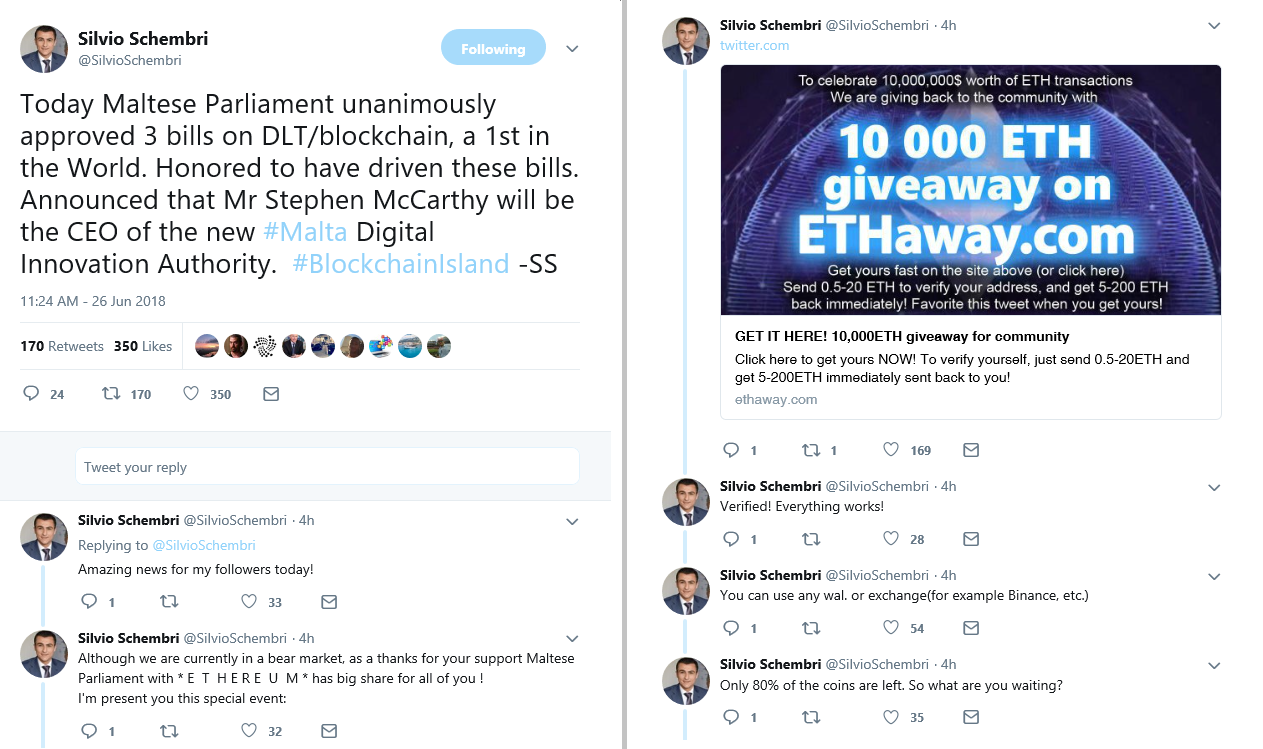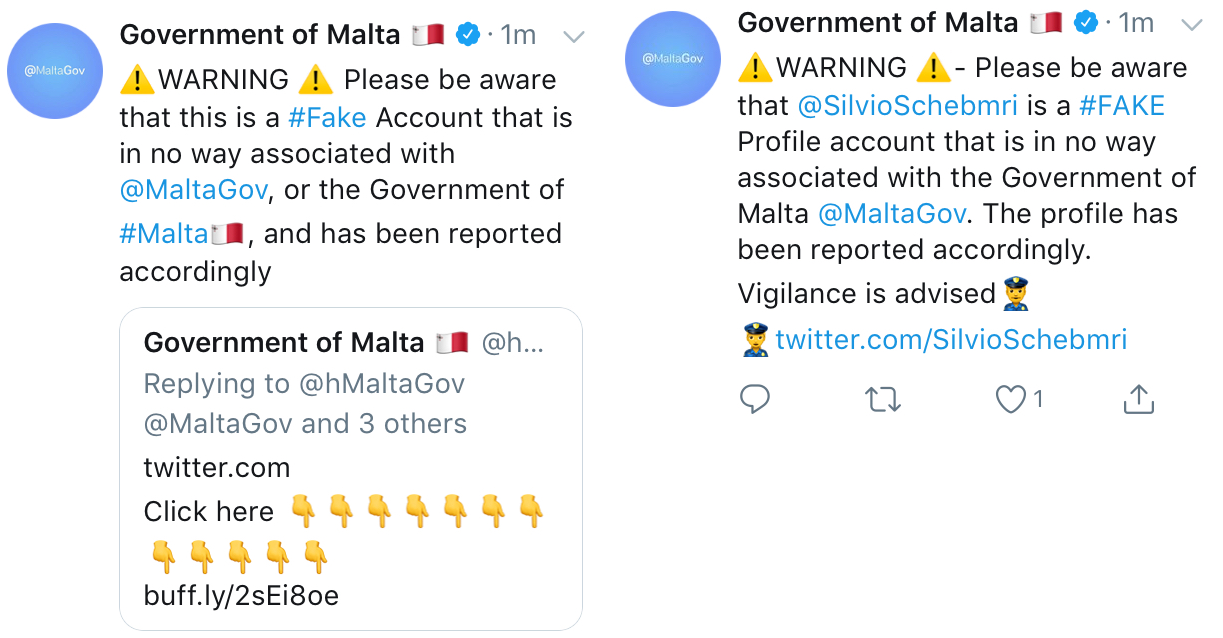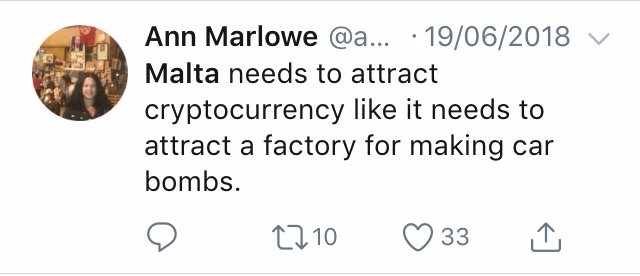Digital economy minister Silvio Schembri, known for his over-enthusiastic #BlockchainIsland tweets, prematurely announced on Twitter that Parliament passed three crypto-related Bills into law, a day before Parliament even had its third reading.
Schembri’s premature tweet started an excited flurry of online celebrations and virtual shoulder taps and high-fives that the laws were passed, when in fact Parliament had not not even completed its third reading of the Bills.
Within the course of the day on Wednesday, Schembri’s tweet-announcement was repeated from tweet to tweet, from blog to blog, from online article to article until it almost became fact. Even the Prime Minister retweeted it.
As the tweet on cryptocurrencies spread, it attracted the dark underbelly of that world. New tweets appeared beneath Schembri’s, inviting users – on behalf of the Junior Minister and the Maltese Parliament – to try their luck at winning five to 200 Etherium (ETH) ‘coins’ – this is a type of cryptocurrency.
Cryptocurrency is a type of digital currency unregulated by a Central Bank.
Those who follow Schembri on Twitter were invited to transfer around $218 to $4,350 (the equivalent of 0.5 to 10 ETH coins) to an anonymous account in order to verify their address.
While scams such as these are common, what is interesting here is that the scammers chose to spoof the Maltese Junior Minister’s twitter account – twice.

A few weeks ago, the same scammers similarly spoofed the Maltese government’s official Twitter account.
In each case, the Maltese government hurriedly issued a semi-panicked warning about the fake accounts and scams.

Like most things, Blockchain’s underlying technology does offer promise, but it is not without risk. That risk is particularly high with cryptocurrencies and their operators who, despite advances in regulation, still operate in a wild west.
Although people accuse banks of being overly cautious with cryptocurrencies, there are many reasons to be wary.
Like other online technologies in their infancy, the cryptocurrency system is full of scammers, illicit schemes and money laundering outfits.
Last February, Europol said criminals in Europe are using cryptocurrencies to launder as much as $5.5 billion in illegal money.
The cryptocurrency operators that Muscat and Schembri tweet about – Binance and OkEX – both have a registered user base of over 20 million people.
They are also known to apply some of the industry’s least rigorous “know-your-customer” anti-money laundering policies.
Under the new law, these giants are supposed to be subjected to anti-money laundering requirements – including due diligence on users, and oversight from Malta’s Financial Intelligence Analysis Unit (FIAU).
Now, the FIAU is subjected to the European Banking Authority’s first formal investigation.
The FIAU clearly lacks the manpower to adequately monitor and regulate these giants. So, it seems the government invited operators and organisations far beyond its control or competence.

In the cryptocurrency ecosystem, its players are so well known to manipulate news that there are awards for crypto-influencers. They create scams and they generate fake news to spike up profits when trading.
With the Prime Minister actively courting these cryptocurrency players, and with Schembri and others already involved, it is little wonder that people may have been convinced by online headlines about Malta transforming into “Blockchain Island”.
Recall that Malta’s first foray into cryptocurrency was the extremely hyped up and rushed opening of a Bitcoin ATM in Sliema last year, which lasted just under two months before being removed amid accusations of fraud and the operator eventually fleeing the island.
Sometimes a cold shower is in order.












